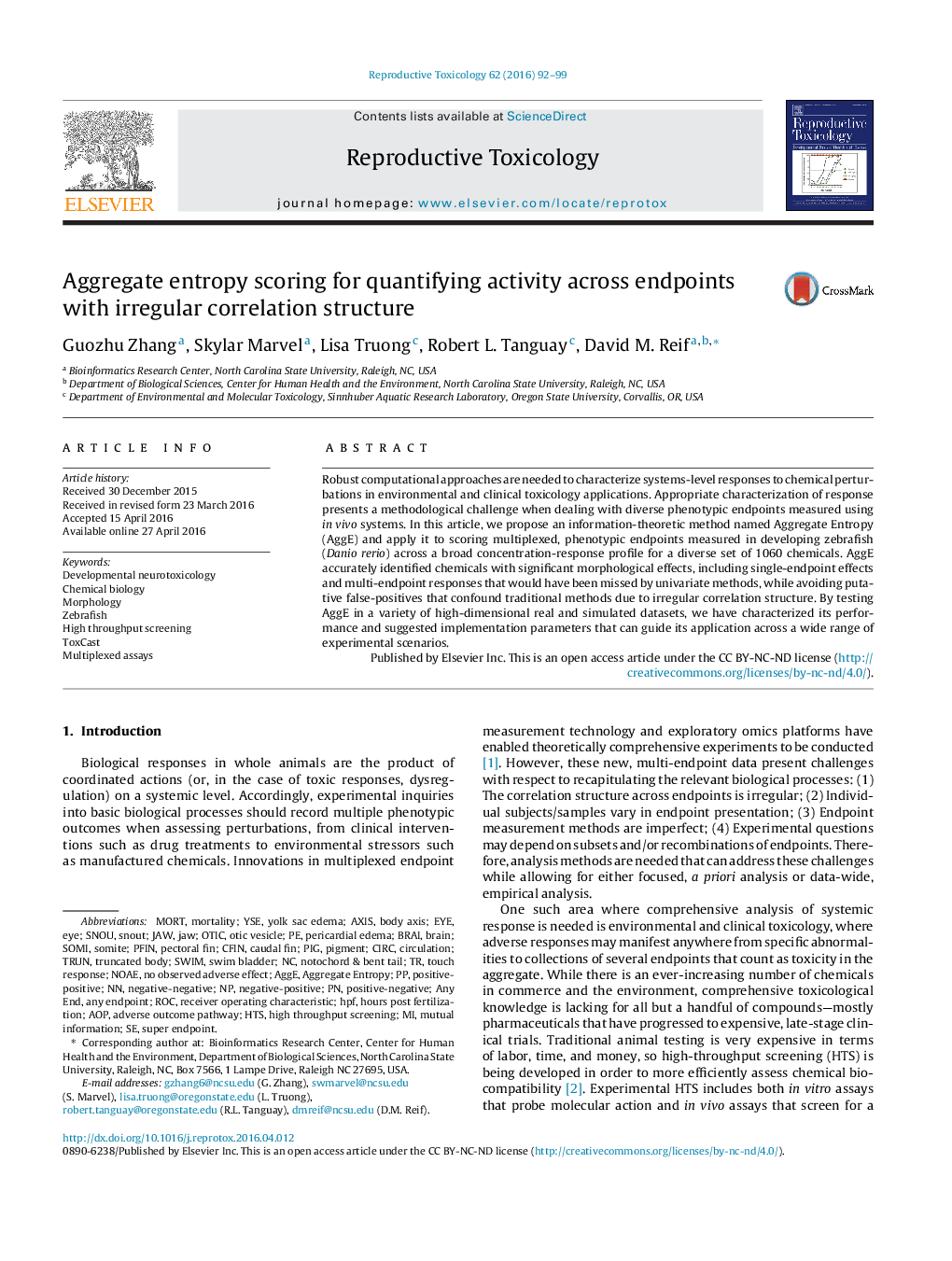| Article ID | Journal | Published Year | Pages | File Type |
|---|---|---|---|---|
| 5858028 | Reproductive Toxicology | 2016 | 8 Pages |
Abstract
Robust computational approaches are needed to characterize systems-level responses to chemical perturbations in environmental and clinical toxicology applications. Appropriate characterization of response presents a methodological challenge when dealing with diverse phenotypic endpoints measured using in vivo systems. In this article, we propose an information-theoretic method named Aggregate Entropy (AggE) and apply it to scoring multiplexed, phenotypic endpoints measured in developing zebrafish (Danio rerio) across a broad concentration-response profile for a diverse set of 1060 chemicals. AggE accurately identified chemicals with significant morphological effects, including single-endpoint effects and multi-endpoint responses that would have been missed by univariate methods, while avoiding putative false-positives that confound traditional methods due to irregular correlation structure. By testing AggE in a variety of high-dimensional real and simulated datasets, we have characterized its performance and suggested implementation parameters that can guide its application across a wide range of experimental scenarios.
Related Topics
Life Sciences
Environmental Science
Health, Toxicology and Mutagenesis
Authors
Guozhu Zhang, Skylar Marvel, Lisa Truong, Robert L. Tanguay, David M. Reif,
